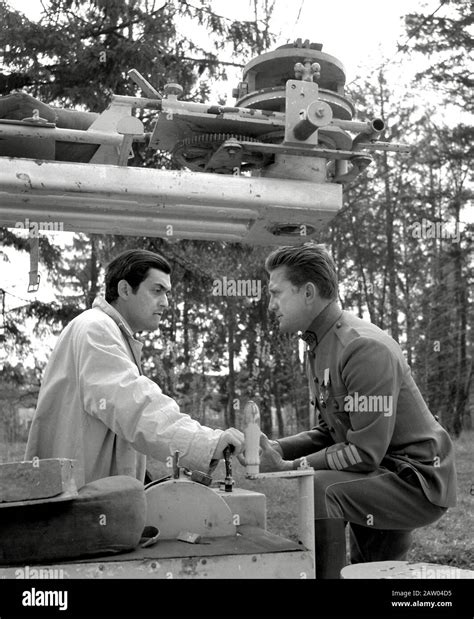Paths of Glory
directed by: Stanley Kubrick, year: 1957
actors: Kirk Douglas, Ralph Meeker, Adolphe Menjou, George Macready
actors: Kirk Douglas, Ralph Meeker, Adolphe Menjou, George Macready

Description:
Paths of Glory is a powerful anti-war film set during World War I, directed by Stanley Kubrick. The story follows Colonel Dax, played by Kirk Douglas, who is tasked with defending three soldiers unjustly accused of cowardice after a failed attack on a German position. The film explores themes of military hierarchy, the futility of war, and the moral dilemmas faced by individuals in the chain of command. With its stark and gripping narrative, it remains a classic of war cinema.Keywords:
Chain Of Command, War, Drama, Anti War, World War I, MilitaryWhy was Paths of Glory banned?
"Paths of Glory," directed by Stanley Kubrick and released in 1957, faced bans in several countries, notably France, due to its critical portrayal of the military and its anti-war themes. The film depicts the unjust execution of soldiers during World War I and the moral dilemmas faced by officers. Authorities were concerned that its depiction of military incompetence and the harsh realities of war could undermine national pride and provoke dissent. The film's stark critique of authority and the futility of war resonated with audiences, leading to its censorship in certain regions.
Is Paths of Glory worth watching?
Yes, "Paths of Glory," directed by Stanley Kubrick, is definitely worth watching. Released in 1957, it is a powerful anti-war film that explores themes of duty, morality, and the absurdity of war during World War I. The film features strong performances, particularly by Kirk Douglas, and is renowned for its striking cinematography and compelling storytelling. Its critique of military hierarchy and the dehumanization of soldiers remains relevant, making it a poignant and thought-provoking experience. Overall, it's considered a classic in cinema history.
What is the main message of Paths of Glory?
"Paths of Glory," directed by Stanley Kubrick, conveys a powerful anti-war message, highlighting the absurdity and brutality of military hierarchy and the dehumanization of soldiers in wartime. The film critiques the moral failures of leadership, showcasing how innocent men are sacrificed for the sake of maintaining discipline and reputation. Through the story of a colonel defending his men against unjust charges, it underscores themes of justice, honor, and the consequences of blind obedience to authority, ultimately questioning the ethics of war.
Is the book Paths of Glory a true story?
"Paths of Glory," directed by Stanley Kubrick, is based on a novel of the same name by Humphrey Cobb, published in 1935. While the book and film are not directly based on a true story, they are inspired by the real events of World War I, particularly the tragic court-martial of French soldiers who refused to fight in a doomed attack. The themes of injustice and the absurdity of war in both the book and film resonate with historical realities, but the specific characters and events are fictionalized for narrative purposes.
Explore More Categories: